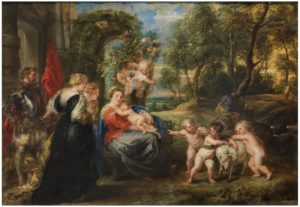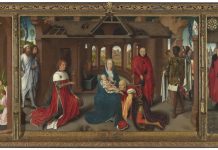Autor: Ricardo Pérez de Arce Molina. Director Clínica Jurídica sede Santiago, Universidad San Sebastián, Chile. Correo electrónico: riparcem@yahoo.es
Resumen: Dentro de los elementos fundantes de una sociedad, siempre estará el de las formas jurídicas que reviste el trabajo humano de carácter económico y, especialmente, la vinculación de las personas con su faena productiva y con el dominio del producto resultante de su desempeño. En Chile, como en gran parte del mundo, la forma de vinculación individual laboral ha sido invariable desde los inicios del siglo XX, la figura del “contrato de trabajo”, sin perjuicio de algunas características y contenidos de este que han sido elementos más mutables. En este artículo se revisa la trayectoria en Chile de las teorías jurídicas que buscaron alternativas de vinculación laboral desde miradas cooperativistas o comunitaristas, con trabajadores propietarios sin contrato de trabajo de por medio, reservando al ámbito privado las relaciones jurídicas intraempresa y la incorporación directa del producto del trabajo al patrimonio de los mismos trabajadores.
Esta idea fue recibida por teóricos del Derecho entre las décadas de 1920 y 1950, expresándola en escritos de tono muy crítico en formato teórico y académico. Con todo, en el año 1964, varios de estos juristas accedieron al gobierno chileno declarando su intención de poner en práctica aquellas mismas ideas laborales antes formuladas, pero en una época muy distinta que no permitía tales proyectos.
En un período constituyente como el que se vive en Chile durante 2021-2022, el estudio de la trayectoria de las ideas jurídicas, sean estas exitosas o no, se hace necesario en la búsqueda de definiciones y legitimidades políticas.
Palabras clave: Chile; Derecho del Trabajo; Eduardo Frei Montalva; Salvador Allende; cooperativismo; comunitarismo; relación laboral
Abstract: Among the foundational elements of a society, there will always be the ones that concerns the legal forms of the human economic work, specially, the link of the workers with their productive center and with the ownship of the product resulting from their performance. In Chile, as in much of the world, the form of individual labor bonding has been invariable since the beginning of the 20th century, the figure of the “employment contract”, notwithstanding to some characteristics and contents of this contract that have been more mutable. This article reviews the trajectory in Chile of legal theories about alternative employment relationships from cooperative or communitarian views, with proprietary workers without an employment contract involved, reserving intra-company legal relations and the direct incorporation of the product to the private sphere of the workers. This idea was received by Chilean jurists between the 1920s and 1950s, expressing it in highly critical writings in a theoretical and academic format. However, in 1964, several of these jurists acceded to the Chilean government declaring their intention to put into practice those same labor ideas formulated by themselves, but at a very different time that did not allow such projects.
In a constituent period such as that experienced in Chile during 2021-2022, the study of the trajectory of legal ideas, whether successful or not, is necessary in the search for definitions and political legitimacy.
Key Words: Chile; Labor Law; Eduardo Frei Montalva; Salvador Allende; cooperativism; communitarianism; employment relationship
Sumario:
INTRODUCCIÓN.
I. EL PARADIGMA LABORAL EN LA LEY CHILENA EN SUS PRIMERAS EXPRESIONES. LAS LEYES SOCIALES DE 1924 Y EL CÓDIGO DEL TRABAJO DE 1931.
II. LOS PENSADORES ALTERNATIVOS AL PARADIGMA OFICIAL DEL TRABAJADOR SUBORDINADO.
1. Alberto Hurtado Cruchaga.
2. Eduardo Frei Montalva.
3. Gustavo Lagos Matus.
III. EL TIEMPO DE ACTUAR. LA DÉCADA DE 1960 Y LA PRESIDENCIA DE EDUARDO FREI MONTALVA EN 1964.
IV. EL RESULTADO: NADA EN LO INDUSTRIAL Y UNA FUGAZ OPORTUNIDAD EN LO AGRÍCOLA.
V. LA CONTROVERSIA POR LA NATURALEZA JURÍDICA DE LA RELACIÓN LABORAL Y LA PREVALENCIA DE LA RELACIÓN MEDIADA POR EL ESTADO.
VI. CONCLUSIONES.
Revista indexada en SCOPUS, REDIB, ANVUR, LATINDEX, CIRC, MIAR
Referencia: Actualidad Jurídica Iberoamericana Nº 16 bis, junio 2022, ISSN: 2386-4567, pp. 396-419.






